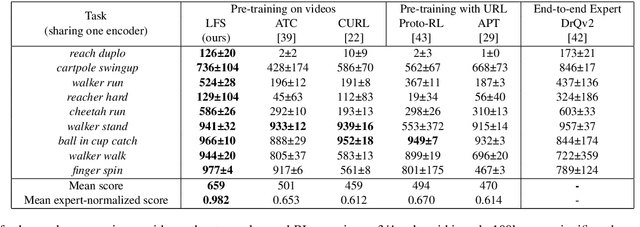Learning Future Representation with Synthetic Observations for Sample-efficient Reinforcement Learning
Paper and Code
May 20, 2024



In visual Reinforcement Learning (RL), upstream representation learning largely determines the effect of downstream policy learning. Employing auxiliary tasks allows the agent to enhance visual representation in a targeted manner, thereby improving the sample efficiency and performance of downstream RL. Prior advanced auxiliary tasks all focus on how to extract as much information as possible from limited experience (including observations, actions, and rewards) through their different auxiliary objectives, whereas in this article, we first start from another perspective: auxiliary training data. We try to improve auxiliary representation learning for RL by enriching auxiliary training data, proposing \textbf{L}earning \textbf{F}uture representation with \textbf{S}ynthetic observations \textbf{(LFS)}, a novel self-supervised RL approach. Specifically, we propose a training-free method to synthesize observations that may contain future information, as well as a data selection approach to eliminate unqualified synthetic noise. The remaining synthetic observations and real observations then serve as the auxiliary data to achieve a clustering-based temporal association task for representation learning. LFS allows the agent to access and learn observations that have not yet appeared in advance, so as to quickly understand and exploit them when they occur later. In addition, LFS does not rely on rewards or actions, which means it has a wider scope of application (e.g., learning from video) than recent advanced auxiliary tasks. Extensive experiments demonstrate that our LFS exhibits state-of-the-art RL sample efficiency on challenging continuous control and enables advanced visual pre-training based on action-free video demonstrations.
 Add to Chrome
Add to Chrome Add to Firefox
Add to Firefox Add to Edge
Add to Edge